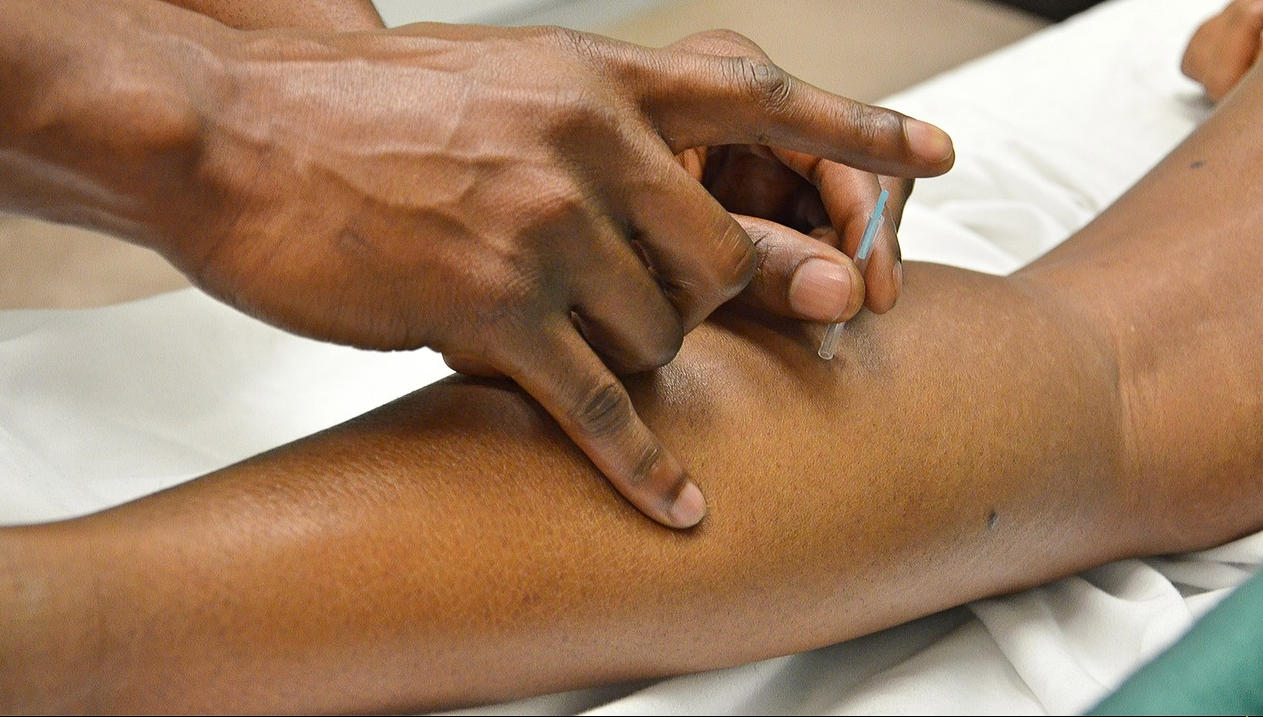Last updated on March 12th, 2024 at 01:50 pm
by Dr Qian
Share
by Dr Qian
Share

Last updated on March 12th, 2024 at 01:50 pm
Why Acupuncture for Menopausal Symptoms?
As women advance in years, they can encounter various disagreeable symptoms related to menopause. Hot flushes, night sweats, temperament changes, and sleep disturbances are a number of the most common symptoms. Fortunately, acupuncture can offer help for a lot of these symptoms.
Acupuncture is a type of traditional Chinese medicine that has been practised for thousands of years. It includes the insertion of extremely thin needles into particular points on the body in order to activate the body’s natural healing process. Acupuncture is known to assist in balancing the body’s energy and enhance overall health.
Studies have demonstrated that acupuncture can help treat menopausal symptoms. One research found that acupuncture enhanced the frequency and severity of hot flashes in women who were experiencing menopause. Another study discovered that acupuncture improved sleep quality in menopausal females.
The precise means by which acupuncture may help with menopausal symptoms is not fully understood. Nevertheless, it is believed that acupuncture can help balance hormones, reduce stress, and improve circulation. All of these factors can contribute to alleviating some of the symptoms associated with menopause.
How Acupuncture for Menopausal Symptoms Works
Acupuncture is perceived to work in two ways. Firstly, the insertion of the needles is supposed to spur the generation of endorphins, which are hormones that act as natural painkillers, potentially aiding in reducing menopausal symptoms.
Secondly, acupuncture is believed to be able to regulate the body’s hormone production, helping to re-establish equilibrium and decrease symptoms.
Studies have shown that acupuncture may be effective in addressing menopausal troubles such as hot flashes, night sweats, and mood changes. It may also reduce the danger of depression and anxiety frequently associated with the menopause.
The amount of sessions required will depend on the intensity of the symptoms, but typically a course of treatment will consist of numerous sessions over weeks or months. It is significant to bear in mind that the effects of acupuncture may not be instantaneous, and it may take several sessions before any enhancement is evident.
List of Menopausal Symptoms
Below are just 20 Symptoms most commonly experienced by women before and during menopause. However, every woman is different and so in addition to any of the listed symptoms you may experience symptoms not shown here.
All of these can be treated with TCM, Acupuncture or Chinese Herbal medicine. In some cases where a woman is experiencing a large number of symptoms Chinese Herbal Medicine is a better option as the doctor can create formulas that specifically target each of those symptoms.
1. Hot flashes
2. Night sweats
3. Sleep disturbances
4. Mood swings
5. Irritability
6. Vaginal dryness
7. Decreased libido
8. Weight gain
9. Hair loss
10. Joint pain
11. Muscle aches
12. Memory problems
13. Breast tenderness
14. Headaches
15. Difficulty concentrating
16. Fatigue
17. Anxiety
18. Depression
19. Heart palpitations
20. Bloating
FAQs – Acupuncture for Menopausal Symptoms
Question 1: What are the benefits of treating Menopausal symptoms with Acupuncture?
Answer: Acupuncture can help reduce hot flashes and night sweats, improve sleep, reduce stress and anxiety, and improve overall quality of life.
Question 2:How often should I get acupuncture treatments for Menopausal symptoms?
Answer: Depending on the severity of your symptoms and your response to treatment, you may need to get treatments anywhere from 1-3 times a week for several weeks.
Question 3: Is acupuncture safe for Menopausal symptom treatment?
Answer: Acupuncture is generally considered safe when performed by a trained and certified practitioner.
Question 4: Are there any side effects associated with acupuncture for Menopausal symptoms?
Answer: In most cases, acupuncture is a safe treatment with minimal side effects. However, some people may experience temporary soreness or bruising at the needle site.
Question 5:What other treatments should I consider for Menopausal symptoms?
Answer: In addition to acupuncture, lifestyle changes such as dietary modifications, stress management, and exercise can also help improve menopausal symptoms. Hormonal therapy, herbal remedies, and other medications may also be recommended by your doctor.
STAY IN THE LOOP
Subscribe to our free newsletter.
Last updated on March 8th, 2024 at 02:08 pmThe Skinny on Acupuncture: How It Can Help You Lose Weight Hey there, gorgeous! If you’re looking for a new way to approach weight loss, have you considered acupuncture? It might seem a bit unconventional, but recent research has shown that acupuncture can be a game-changer when […]
Last updated on March 8th, 2024 at 02:08 pmA Healing Touch: The Role of Acupuncture in Anxiety Treatment – Managing Anxiety Symptoms – Acupuncture, a traditional Chinese medicine technique, is increasingly being recognized as an effective treatment for anxiety. Anxiety disorders affect millions of people worldwide and can lead to significant impairment in daily functioning. […]
Last updated on March 8th, 2024 at 02:08 pmWhat are Chinese acupuncture’s benefits for women’s health? Chinese acupuncture is an ancient healing art that has been used for centuries to treat a wide range of conditions. It has been used to treat physical and emotional ailments, as well as to promote general health and well-being. […]
Last updated on March 8th, 2024 at 02:08 pmWhat is a Frozen Shoulder A frozen shoulder, also known as adhesive capsulitis, is a condition that causes pain and stiffness in the shoulder joint. It occurs when the capsule of connective tissue surrounding the shoulder joint becomes inflamed and tight, leading to reduced mobility of the […]
Last updated on March 8th, 2024 at 02:08 pm
Last updated on March 8th, 2024 at 02:08 pm
Last updated on March 8th, 2024 at 02:08 pm
Last updated on March 8th, 2024 at 02:08 pm





